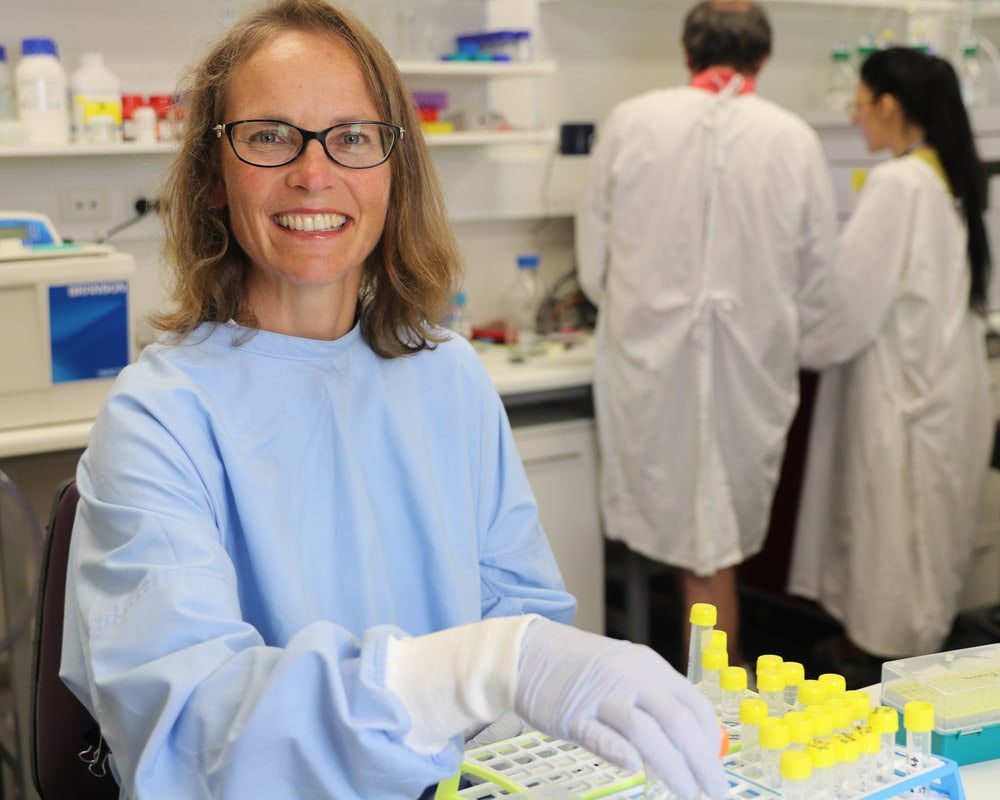
For chemotherapy to be effective in the treatment of breast cancer, it is vital that the dose is correct. Too low and the drug will not work properly, too high and it will cause additional unwanted side effects. It is estimated that up to 60% of patients do not receive the correct dose, and this may lead to suboptimal outcomes.
It is possible to monitor the concentration of chemotherapy drugs within the body through blood tests, but these are invasive, especially during prolonged therapy regimes (which may last up to five years). Traditional blood tests also raise logistical barriers, as patients need to travel to a pathology centre or medical clinic. This may soon change with the development of a finger-prick test that can provide the same information. The test, similar to the blood glucose pinprick tests that people with diabetes complete, has been developed by Professor Jennifer Martin and her team at The University of Newcastle.

Professor Jennifer Martin, The University of Newcastle
The simplicity of the test, where a single drop of blood is placed onto a device, means that it can be completed by the patient in their own home, or by any attending medical practitioner. The sample can then be posted to a central analysis site, with the results rapidly sent back to the oncologist.
The test will allow personalised chemotherapy regimens, which can be adapted quickly as the body responds to treatment.
“By monitoring chemotherapy levels early in treatment, clinicians will be able to adjust doses to achieve the ideal blood level. This will lead to direct and significant benefits for all patients, including enabling greater accessibility for rural and remote patients,” Professor Martin said.
NBCF proudly provided seed funding for this project, which has now led this approach being a part of a $1.96 million investment from the Cancer Council NSW. A clinical trial will now be completed in New South Wales, and part of this trial will involve fingerprick blood testing, with the results expected to lead to better monitoring for all patients undergoing chemotherapy.
More News Articles
View all News


